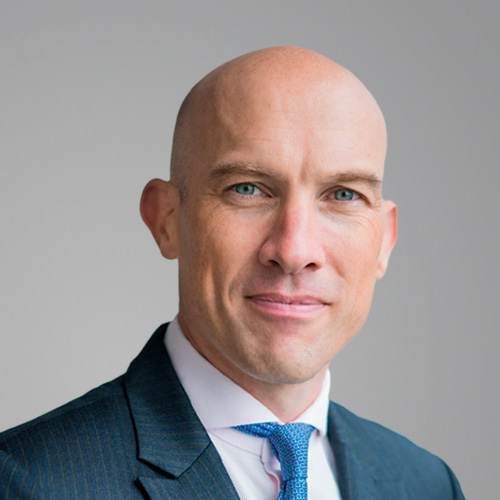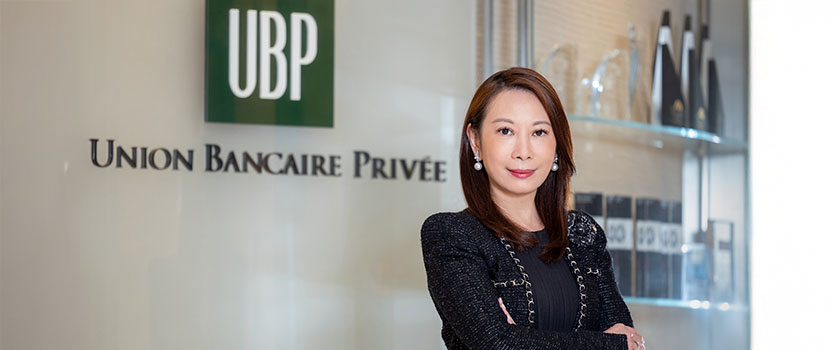Finews (09.03.2022) - UBP’s Asia business saw equally strong contributions from Hong Kong and Singapore during the pandemic, the bank’s regional chief executive Michael Blake told finews.asia, underlining that success from the dual hubs need not come at the expense of one another.
Currently, UBP’s assets under management (AUM) in Asia across wealth and asset management total around USD 33 billion and this was driven over the past year by positive market performance and net new money equivalent to 5 and 10 percent of the wealth management asset base.
About two-thirds of net new money came from relationship managers hired over the last two years with the remaining one-third from established ones – a sign of sustained ability to acquire new clients and assets.
Three markets stood out as key drivers of net new money: Greater China clients, domestic clients in Singapore and non-resident Indian (NRI) clients sourced from the bank’s Dubai-based team.
“Not a Zero-Sum Game”
According to UBP's Asia CEO Michael Blake, the newly acquired assets were split evenly between Hong Kong and Singapore – an ongoing trend that he does not foresee will end soon despite negative media headlines surrounding the former financial hub.
“When I look at the overall development of our business over the last two years, Hong Kong and Singapore have played an equally important role and I don’t expect that to change in the next five years,” Blake said in a recent conversation with finews.asia.
“Competition between Hong Kong and Singapore is not a zero-sum game and I expect the overall market opportunity for both locations to continue to expand. I think [they] both coexist as wealth management centres very comfortably as they are complementary in many ways given the geographic distance. I see the need to develop both locations at roughly the same pace.”
Target Markets
About 15 percent of UBP’s overall relationship managers in Asia were hired last year with half focused on Greater China markets and the other half focused on Dubai-based NRIs and Singapore’s domestic market.
In 2022, the bank will continue to hire to target these three markets in addition to the international market – a new area of focus backed in part by the addition of ex-Barclays banker Grace Champion last year to focus on the coverage of European clients.
The bank is also ramping up its efforts in servicing external asset managers (EAMs) after appointing 20-year UBP veteran Fabrice Volluz to lead the business in the region where AUMs for the segment doubled in the last year, albeit from a low base.
Onshore Ambitions
Outside of the offshore business, the bank is also eyeing the onshore market in mainland China which Blake calls a “golden opportunity for wealth management”. UBP recently secured a qualified domestic limited partnership (QDLP) license in Hainan province which will allow it to offer offshore strategies to qualified investors onshore.
“For all the obvious reasons, mainland China is the one onshore market we are focused on,” Blake added.
“We’ll be establishing the business this year and it will provide us with another channel to further our commitment and footprint in China.”
Active Management, Alternatives
On client investments, UBP is seeing an increasing shift away from traditional long-only strategies and passive instruments towards alternatives and active management due to growing market uncertainty.
In alternatives, for example, UBP is actively building out its private market offering across real estate, private debt, infrastructure, private equity and pre-IPO deals. It manages more than USD 4 billion in alternatives worldwide with about 33 percent of eligible clients in Asia currently invested in private market deals through the bank.
And on active management, UBP saw strong demand for discretionary portfolio management (DPM) in the past year driven in large part by its introduction of a unitised solution that allows clients to invest through a fund structure without undergoing the onerous process of signing an individual mandate. More than one-third of the bank’s Asian clients are invested in DPM today and it aims for this target to reach 50 percent by the end of 2022.
“I think the biggest risk for the industry this year in Asia is responding to the market,” said Blake, noting that the post-Covid market environment has changed. “This will require a pivot from long-only strategies to an environment where alternatives and active management become much more important in order to smooth volatility and deliver returns.”
*This interview was conducted on 18 February 2022









